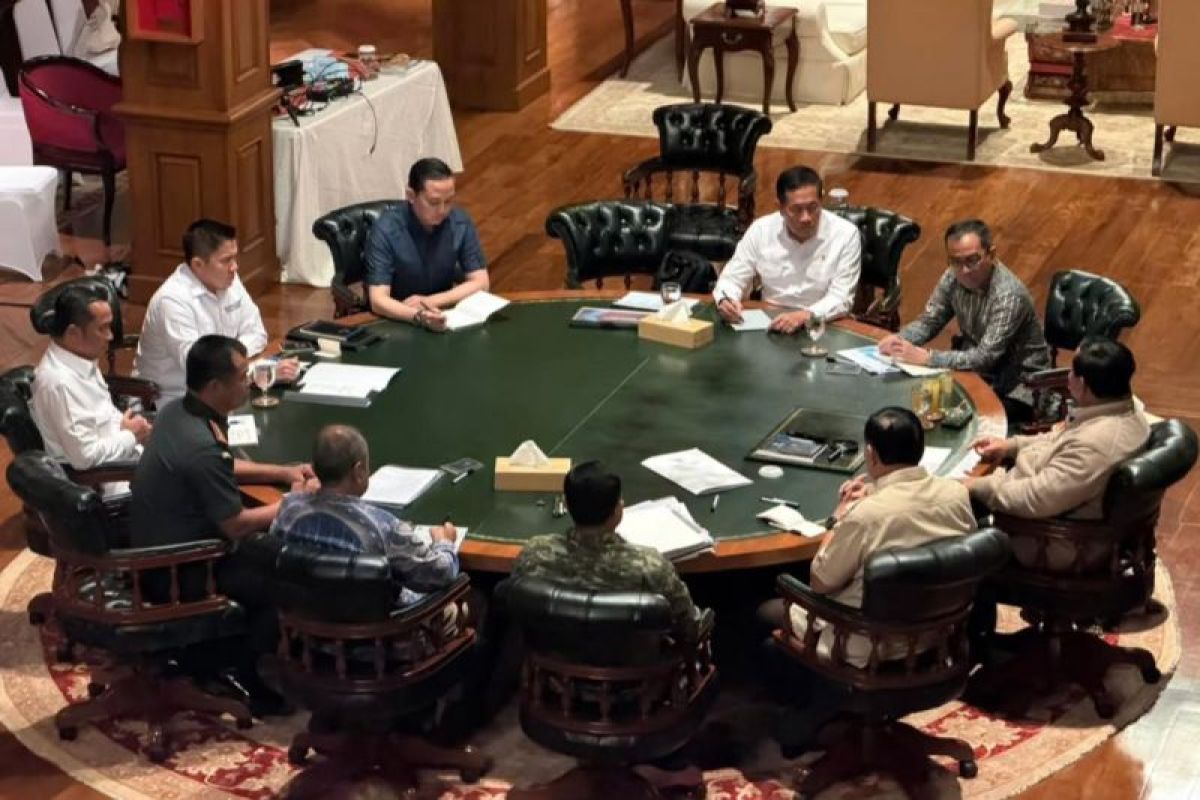
Countries rush to make deals to avoid new Trump tariffs as world economy braces for impact
How are countries reacting to high tariffs imposed by President Donald Trump?
“There’ll be some supply chain rearrangement. There’ll be a new equilibrium. Prices here will go up, but it’ll take a while for that to show up in a major way,” said William Reinsch, a senior fellow and trade expert at the Center for Strategic and International Studies in Washington.
Countries with punishingly high duties, such as India and Canada, “will continue to scramble around trying to fix this,” he added.
Switzerland’s President Karin Keller-Sutter stated on Thursday that talks with the U.S. would continue after she returned empty-handed from an 11th-hour trip to Washington aimed at preventing the crippling U.S. import tariff on Swiss goods.
A last-minute effort by South Africa to improve its offer in exchange for a lower tariff rate also failed. The trade negotiating teams of both countries will have more discussions, according to South African President Cyril Ramaphosa’s office.
Vietnam announced on Thursday that it would continue talks with the U.S. as it seeks to lower tariffs further, following negotiations that resulted in a reduction from 46% to 20%, down from the duty Trump imposed on imports from the Southeast Asian country in April.
Meanwhile, Brazil’s President Luiz Inacio Lula da Silva told Reuters on Wednesday that he would not humiliate himself by seeking a phone call with Trump, even as he said his government would continue cabinet-level talks to lower a 50% tariff rate.
Indian Prime Minister Narendra Modi also expressed defiance, saying he would not compromise the interests of the country’s farmers.
There were signs that some nations were joining forces to confront Trump, with Brazil’s Lula saying he would call the leaders of India and China to discuss a joint BRICS response to tariffs.
India announced on Wednesday that Modi would visit China for the first time in seven years.
Oliver O’Connell7 August 2025 17:40
Bank predicts American shoppers will bear most of tariff costs
Meera Pandit, J.P. Morgan Asset Management global markets strategist, joined CNBC’s Squawk on the Street to discuss how she expects President Donald Trump’s tariffs could impact profitability, consumer behavior, and more.
She said the bank expects around 60 percent of the costs of tariffs to be passed on to American consumers, while companies retain 40 percent.
Pandit noted that tax cuts could provide a tailwind for consumer and corporate profitability in the coming year. However, she expressed concern about the potential inflationary effects of these policies, influenced by the Federal Reserve’s reaction to the weakening job market and rising goods costs.
Despite a possible shift in inflation trends towards services, growth and inflation are expected to remain linked, potentially keeping inflation elevated in the first half of the next year.
Oliver O’Connell7 August 2025 17:20
Gov. Kathy Hochul lays out what new Trump tariffs will cost New Yorkers
Oliver O’Connell7 August 2025 17:15
What is the Trump administration hoping to achieve with its sweeping tariffs?
President Donald Trump’s top trade negotiator, Jamieson Greer, said the U.S. was working to reverse decades of policies that had weakened U.S. manufacturing capacity and workforce, and that many other countries shared concerns about macroeconomic imbalances.
“The rules of international trade cannot be a suicide pact,” he wrote in a column published by The New York Times.
“By imposing tariffs to rebalance the trade deficit and negotiating significant reforms that form the basis of a new international system, the United States has shown bold leadership,” Greer said.
Eight major trading partners, accounting for approximately 40% of U.S. trade flows, have reached framework deals for trade and investment concessions with Trump, including the European Union, Japan, and South Korea, which will reduce their base tariff rates to 15%.
Britain won a 10% rate, while Vietnam, Indonesia, Pakistan, and the Philippines secured rate reductions to 19% or 20%.
Oliver O’Connell7 August 2025 17:00
Watch: Treasury Secretary quizzed on who pays tariffs
Spoiler: It’s the U.S. importer who pays a tax on what they buy from overseas, not the foreign exporter.
Oliver O’Connell7 August 2025 16:45
Lutnick expects U.S. to collect $50B per month in tariff revenues
Commerce Secretary Howard Lutnick said on Thursday he expects the country to collect $50 billion a month in tariff revenues or more — up from $30 billion last month — as higher levies on imports from dozens of countries take effect.
“And then you’re going to get the semiconductors, you’re going to get pharmaceuticals, you’re going to get all sorts of additional tariff money coming in,” Lutnick said in an interview with Fox Business Network.
President Donald Trump’s higher tariffs on imports from dozens of countries took effect on Thursday, raising the average U.S. import duty to its highest in a century, with countries facing tariffs of 10% to 50%.
Much of the cost of the new taxes on imports is expected to be passed on to American consumers.
Oliver O’Connell7 August 2025 16:35
Oliver O’Connell7 August 2025 16:25
Trump’s tariffs: Confusion over transshipment rules
Concerns about the immediate enforcement of stricter U.S. trade penalties on goods rerouted through third countries have eased, according to three individuals in Southeast Asia familiar with the matter, who spoke to Reuters.
Southeast Asian nations, including Vietnam and Thailand, have been specifically singled out by White House officials for their alleged role in facilitating the transshipment of Chinese goods to the U.S. Without such rerouting, these goods would face substantially higher tariffs if shipped directly from China.
The Trump administration started imposing tariffs on goods from dozens of countries on Thursday. An executive order stated that products identified as having been illegally rerouted to conceal their origin would face an additional 40 percent duty. However, the order did not specify what exactly constitutes transshipment.
Currently, U.S. imports from Southeast Asia’s largest economies, which heavily depend on exports, are subject to tariff rates of around 19 percent. This is a significant reduction from previously threatened rates.
Existing U.S. customs guidelines specify that goods from countries without free trade agreements with the U.S., such as those in Southeast Asia, can be labeled as originating from the country where they undergo a “substantial transformation” of components, even if those parts are entirely sourced from another country like China.
With no new U.S. guidance on rules of origin or a clear definition of transshipment, some officials in Southeast Asia have advised exporters that current rules still apply. This effectively limits transshipment cases to illegal activities, such as using forged export certificates or unlawfully obtained documents.
Trade consultants have described the rules as vague, advising clients, even before the latest wave of U.S. tariffs, to ensure at least 40 percent local content in their exports to the U.S. “to be on the safe side,” one consultant noted.
Oliver O’Connell7 August 2025 16:15
‘President Trump wants to hurt the American people, and that’s exactly what he’s doing’
Commenting on the 35 percent tariff on imported Canadian goods paid for by American buyers, Ontario Premier Doug Ford tells Wolf Blitzer on CNN: “President Trump wants to hurt the American people, and that’s exactly what he’s doing.”
In 2024, $413 billion of Canadian goods were shipped to the U.S.
Oliver O’Connell7 August 2025 16:08
Trump demands new census using ‘2024 election information’ and to weed out migrants in population totals
President Donald Trump ordered the Commerce Department to re-run the count of the U.S. population that took place five years ago, while excluding any migrants in the U.S. from the total.
Writing Thursday on Truth Social, Trump said he’d asked the department, which oversees the U.S. Census Bureau, to “immediately” start what he called “a new and highly accurate CENSUS based on modern day facts and figures,” making use of “the results and information gained from the Presidential Election of 2024.”
Andrew Feinberg reports from Washington, D.C.
Oliver O’Connell7 August 2025 15:59








